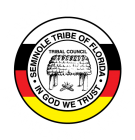Repatriation Committee
Repatriation Committee
Tribal Members:
If you would like to join the repatriation committee, please reach out to Domonique deBeaubien or Tina M. Osceola.
NAGPRA/872 Committee
Chair:
Domonique deBeaubien
THPO Collections Manager
Secretary:
Samantha Wade
Senior Bioarchaeologist
Committee Members:
Tina M. Osceola
Director and THPO
Tribal Historic Preservation Office
Gordon “Ollie” Wareham
Ah-Tah-Thi-Ki Museum Director
Juan J. Cancel
Assistant Director of the
Tribal Historic Preservation Office
Marcella Billie
NAGPRA Liaison
To learn more about the Repatriation Committee you can find basic information here:
Chapter 872.05 Florida Statutes
Florida Inadvertent Discovery Law
Full legal name:
FL 872.05 Offenses Concerning Dead Bodies and Graves
Quick reference name or acronym:
872
Where does it apply:
State, county, and private lands only, within the state of Florida. Federal lands like reservations, National Parks, Military Bases, etc. do not apply.
Summary:
Chapter 872, Florida Statutes makes it is illegal to willfully and knowingly disturb human remains. Under these provisions, the State Archaeologist may take jurisdiction over and control of human remains from individuals who have been dead for at least 75 years.
What the law does:
- Requires Reporting: Requires anyone who discovers an unmarked burial to stop work and report the discovery.
- Requires the burial be assessed for age: If the burial is older than 75 years, then jurisdiction falls to the State Archaeologist. If the burial is less than 75 years, then jurisdiction falls to the local Medical Examiner’s Office.
- Requires determination of ancestry: If the State Archaeologist assumes jurisdiction, they determine if the burial is Native American. This is done through context of the discovery, skeletal analysis, or rarely, radiocarbon dating.
- Requires Consultation: If the burial is determined to be Native American, then the State Archaeologist will consult with the federally recognized tribes in Florida to determine a path forward.
What the law does not do:
- Mandate a particular path forward, or require the site be preserved, especially if the discovery is on private lands.
- The law does not require excavation, but it does not prohibit it. The state cannot prevent a private land owner from using their land, they can only require mitigation.
References:
Chapter 872 Section 05 — 2018 Florida Statutes — The Florida Senate (flsenate.gov)
Human Remains — Division of Historical Resources — Florida Department of State (myflorida.com)
Facts on NAGPRA
Full legal name:
Native American Grave Protection and Repatriation Act
25 U.S.C. 3001 Et seq.; 43 CFR 10
Quick reference name or acronym:
NAGPRA
Where does it apply:
Federal agencies that receive federal funding (museums, universities, medical examiner’s offices, military bases, NPS collections, etc.), and discoveries on federal lands.
Summary:
NAGPRA is a federal law that facilitates the respectful return of Native American ancestral remains, funerary objects, and objects of cultural patrimony held in museum collections, or discovered on federal lands.
What the law does:
- Provides Definitions: The law defines what objects are covered under NAGPRA, which includes ancestral remains, associated funerary objects, unassociated funerary objects, and objects of cultural patrimony. This means the physical remains of an ancestor, as well as objects that were laid with them at death.
- Establishes Ownership: The law determines who has ownership of cultural objects, and establishes who has a legal obligation to comply with the law.
- Requires Consultation: The law requires each federal agency with cultural items to consult with any and all federally recognized tribes who may have a claim to the ancestral remains and objects in their custody.
- Requires the Completion of an Inventory: The federal agency must complete a detailed inventory of all cultural objects in their possession and determine cultural affiliation of those objects and ancestral remains.
- Establishes Cultural Affiliation: Cultural affiliation means which Tribe the cultural objects are most closely related to. The agency establishes cultural affiliation by compiling:
- Evidence of a kin or cultural affiliation between a present-day individual, Indian tribe, or Native Hawaiian organization and human remains, funerary objects, sacred objects, or objects of cultural patrimony must be established by using the following types of evidence: Geographical, kinship, biological, archeological, anthropological, linguistic, folklore, oral tradition, historical, or other relevant information or expert opinion.
- Repatriates cultural objects: Requires the federal agency repatriate (return) ancestral remains and cultural objects determined to be culturally affiliated to a federally recognized Native American Tribe.
- Establishes Protections and Penalties: Burial sites cannot be disturbed on federal lands without consultation with Native American Tribes. Additionally, any federal agency who fails to comply with inventory requirements, and shows willful failure may be assessed penalties.
What the law does not do:
- Make Determinations: The law does not make any specific determinations, or interfere between a federal agency and a Native American Tribe. NAGPRA can provide guidance, but cannot mandate a specific outcome.
- Provide Policing: While the law does provide penalties, the assessment of penalties is very rare. The law provides guidelines, but very little enforcement.
- Apply to Everyone, Everywhere: NAGPRA only applies to federal agencies (museums) or discoveries on federal lands. NAGPRA does not apply to private citizens, agencies that do not receive federal funders, or state/private lands. NAGPRA only applies within the United States, and cannot facilitate international repatriations. NAGPRA also does not apply to the Smithsonian Institution.
References:
Native American Graves Protection and Repatriation Act (U.S. National Park Service) (nps.gov)

